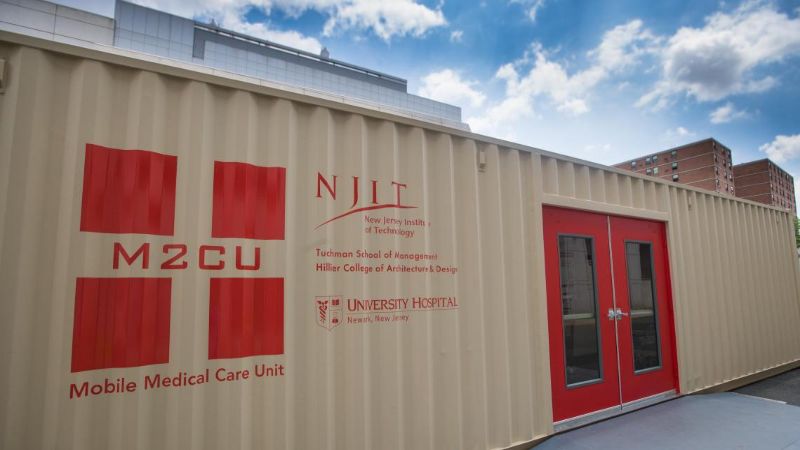
A consortium of three institutions in New Jersey, US have unveiled modular, mobile medical care units intended for use in regions of surging disease outbreaks, other disasters and those with no health care infrastructure.
The consortium involves New Jersey Institute of Technology (NJIT), University Hospital in Newark (UH) and The Tuchman Foundation.
Earlier this month, the partners announced that the mobile units are being developed to address health facility shortage.
The units are made from 40-foot-long repurposed shipping containers with customizable bays for different medical applications, such as point-of-care services and testing and treatment of communicable diseases.
They can be easily transported for rapid deployment. Also, the medical mobile units can be placed horizontally to facilitate larger clinical field operations sites, noted NJIT.
NJIT senior vice provost for research Atam Dhawan said: “The mobile medical care units we are designing can be reconfigured and adapted to deliver a variety of medical needs to augment facilities at hospitals and nursing homes. They can also function independently in communities lacking these facilities.”
How well do you really know your competitors?
Access the most comprehensive Company Profiles on the market, powered by GlobalData. Save hours of research. Gain competitive edge.

Thank you!
Your download email will arrive shortly
Not ready to buy yet? Download a free sample
We are confident about the unique quality of our Company Profiles. However, we want you to make the most beneficial decision for your business, so we offer a free sample that you can download by submitting the below form
By GlobalDataSince the units are made using shipping containers, they can enable re-deployment regionally, nationally and internationally within the current commercial intermodal networks.
Tuchman Foundation chairman Martin Tuchman said: “All of these units are standard and can be moved to a particular area when there is an urgent need. They can be sent to any place in the United States, Canada and Mexico in a matter of days.”
The effectiveness of the units had been tested as triage centres in staged patient care simulations performed by medical personnel at University Hospital.







